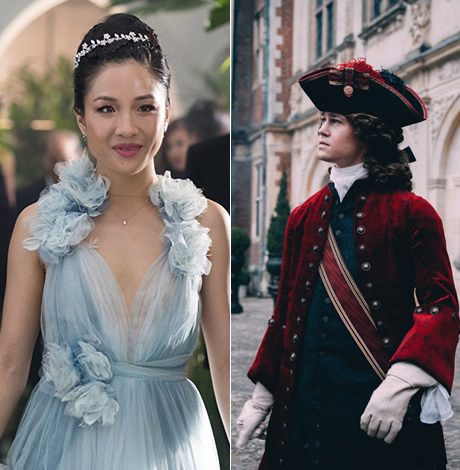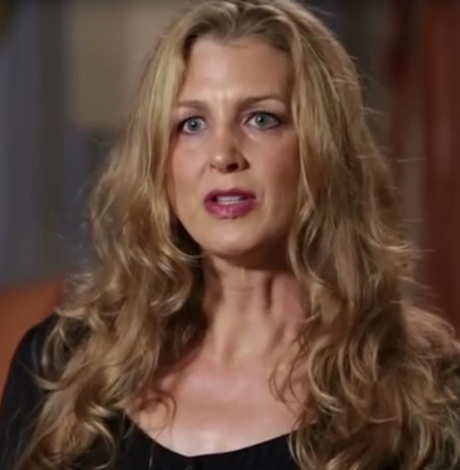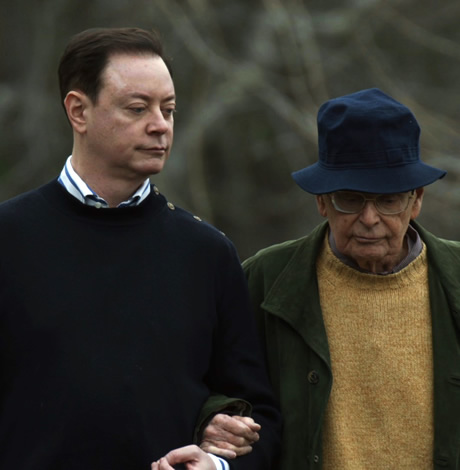Arts & Entertainment
The delights of being different
Two new parenting books explore the gay dynamic in families
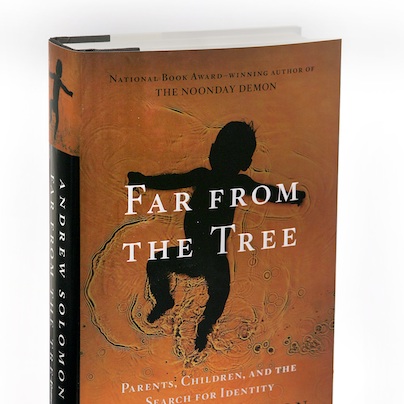
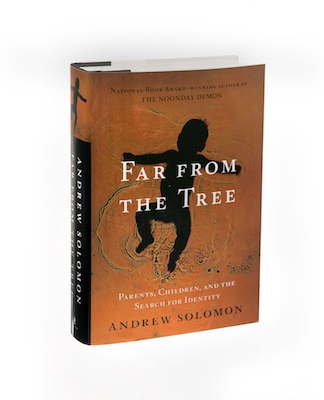
‘Far From the Tree’ explores how parents can celebrate the differences between themselves and their children. (Photo courtesy Penguin Group)
Most parents love their children, yet accepting and being supportive of offspring who differ from you is one of life’s toughest challenges.
Two provocative and moving new books about parenting, difference and identity are just out: “Far From the Tree: Parents, Children and the Search for Identity” by Andrew Solomon and “Oddly Normal: One Family’s Struggle to Help Their Teenage Son Come to Terms with His Sexuality” by John Schwartz.
Solomon, with his husband John is a parent, and Schwartz, who is straight, is the father of a 16-year-old gay son Joseph. The Blade talked with Schwartz by phone and interviewed Solomon before he spoke on Nov. 16 at Politics & Prose in Washington.
Schwartz, a national correspondent with The New York Times, and his wife Jeanne knew early on that their son Joseph was different from his older brother Sam. Joseph wanted nothing to do with Sam’s trucks. “Joe went for the dolls,” Schwartz writes. “As Jeanne recalled it, ‘Barbie never looked so fabulous.’”
As time went on, John and Jeanne Schwartz felt it likely that Joseph was gay. John and Jeanne Schwartz, who’d met in 1975 at age 18 at the University of Texas in Austin, were fine with Joseph’s sexual orientation.
“We were comfortable with Joseph being gay,” John Schwartz says. “We wanted to support him.”
Schwartz was happy when Joseph, then in the seventh grade, came out while they were eating sushi at dinner one night. Then, just as things seemed to be going well, there was trouble. Though he received support at home, the school wasn’t supportive of gay students, Schwartz says.
“Joseph is a quirky guy,” he says. “But the school put labels on him — from Asperger syndrome to depression. It wouldn’t acknowledge that being gay was a key way in which Joseph was different. We wanted the school to see Joe as a whole person. The schools in the New Jersey town where he lives are good. We’re happy with the teaching. But if these schools are good, what’s going on in other parts of the country?”
Angry at the way in which the boys talked about girls, Joseph taunted them. After the boys told the guidance counselor that Joseph’s taunts had made them uncomfortable, Joseph took an overdoes of pills. After hospitilization and months of therapy, Joseph recovered from his depression. Today, Joseph is involved in theater and other activities and finds support in his gay peers. His children’s story “Leo, The Oddly Normal Boy” is a touching ending to “Oddly Normal.”
“I thought parents were the obvious audience for the book,” Schwartz says, “but it’s had a delightful resonance. A 72-year-old man e-mailed me that he’d just come out and told his wife that he’s gay.”
Being normal only gets you so far, Schwartz says. “The things that make you different … are the things that make you interesting.”
Solomon, 49, knew he was different even before he could conceptualize his sexuality. He was unpopular at school because he was so unlike the other boys.
“I never traded a baseball card, but I did recount the plots of operas on the school bus,” he writes.
Today, Solomon and his husband John and their children, are a loving family. John biologically fathered two children for some lesbian friends in Minneapolis while Solomon has a 5-year-old daughter with a friend he knew in college and a son who lives with them full time they had with a surrogate.
Solomon used to worry that it would be difficult for children born into such a different type of household.
“But people are born into households with parents who are cruel or born into terrible poverty. Or they’re born into a whole variety of other challenges,” Solomon said, “I would like to think…that our household is one in which there is a great deal of love and that it will carry the day.”
“Far from the Tree” is a provocative study of difference and identity as well as an argument for acceptance of diversity. Solomon interviewed about 300 families who have raised offspring with differences from themselves. These parents had children who were deaf, dwarfs, autistic, schizophrenic, transgender, prodigies, had Down syndrome, were conceived in rape or became criminals.
There are vertical identities such as ethnicity, nationality or religiosity that are passed on from parents to their children, Solomon says. But there are horizontal identities such as being trans, gay or deaf that are usually not passed on from generation to generation, he says.
“Many parents will love children with horizontal identities, but they’ll have trouble accepting them,” Solomon says. “The tension between love and acceptance can be terrible.”
“Far From the Tree” grew out of an article he wrote in 1994 for the New York Times magazine on deaf culture. “When I began meeting deaf people, I was astonished by what a vital culture it was,” Solomon says. “I discovered that most deaf children were born to hearing parents, and that they frequently didn’t discover deaf culture until their adolescence.”
Solomon felt a connection between their stories and his story.
“As a gay person, it took me a long time to find my culture and all of it seemed so resonant,” he says.
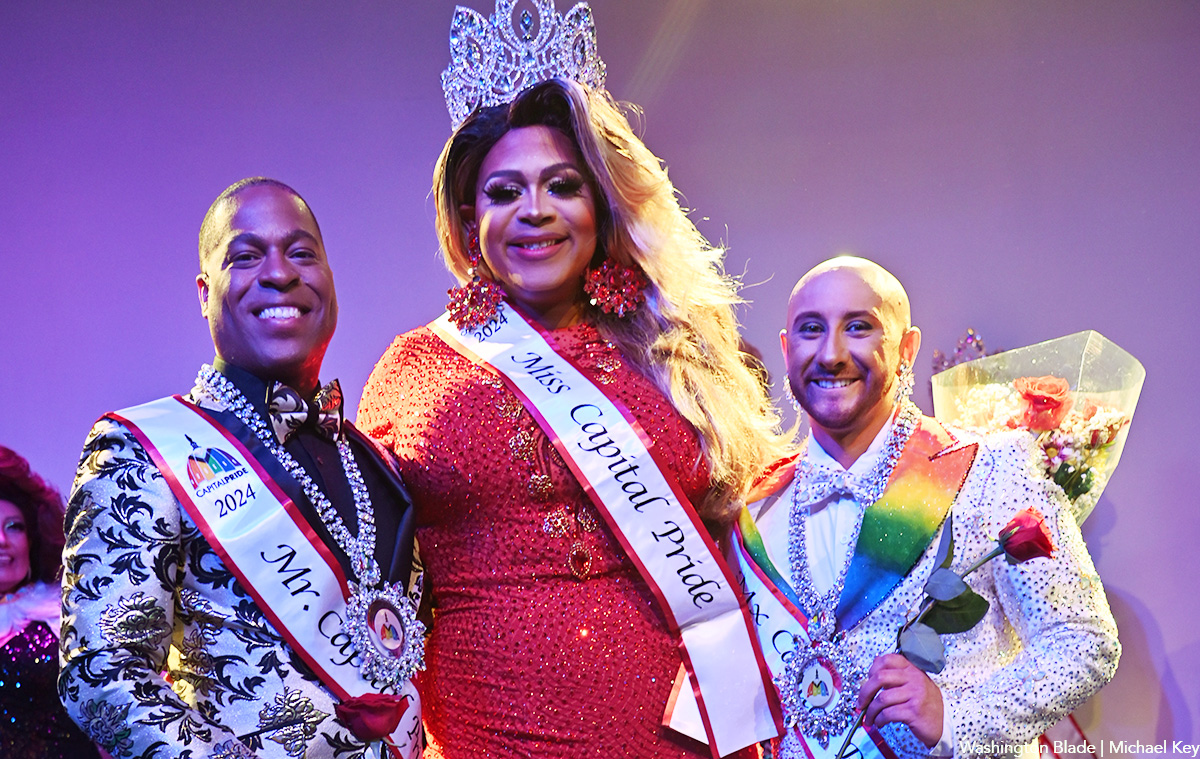
Eight contestants vied for Mr., Miss and Mx. Capital Pride 2024 at a pageant at Penn Social on Saturday. Xander Childs Valentino was crowned Mr. Capital Pride, Dylan B. Dickherson White was crowned Mx. Capital Pride and Sasha Adams Sanchez was crowned Miss Capital Pride.
(Washington Blade photos by Michael Key)
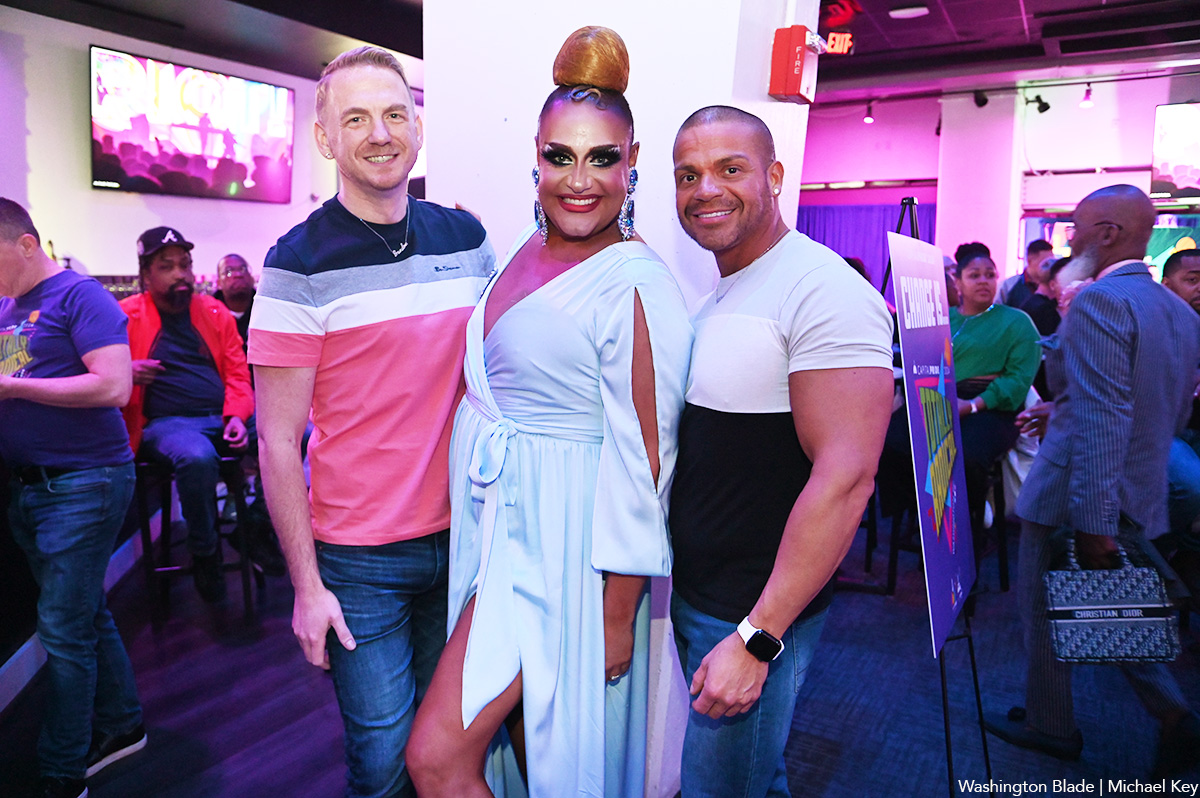
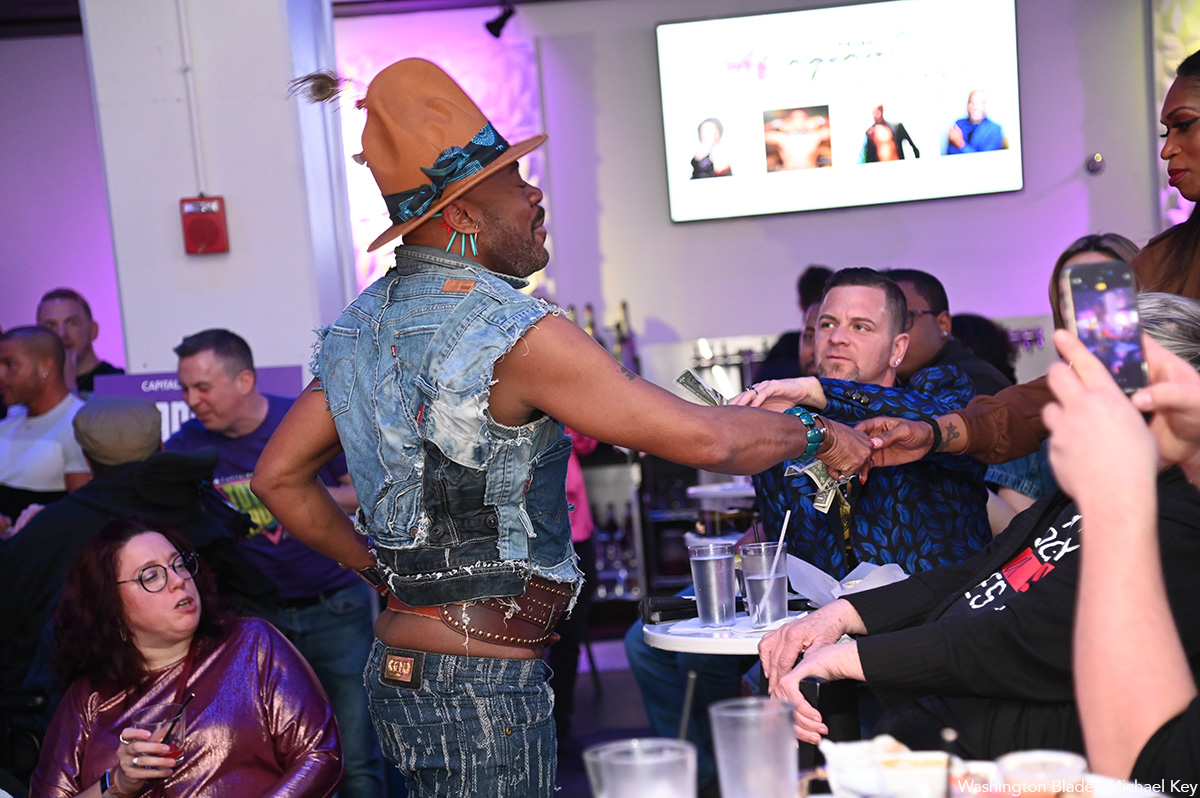
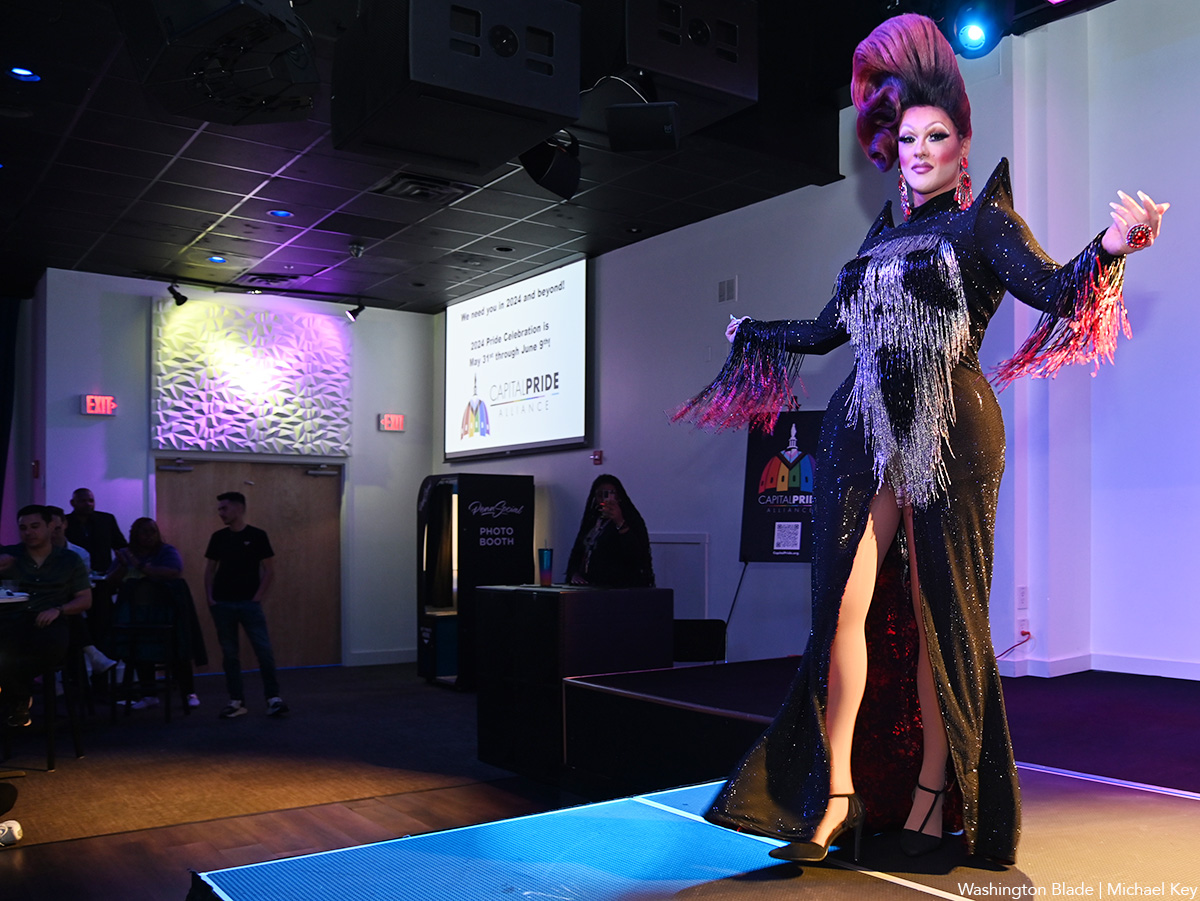
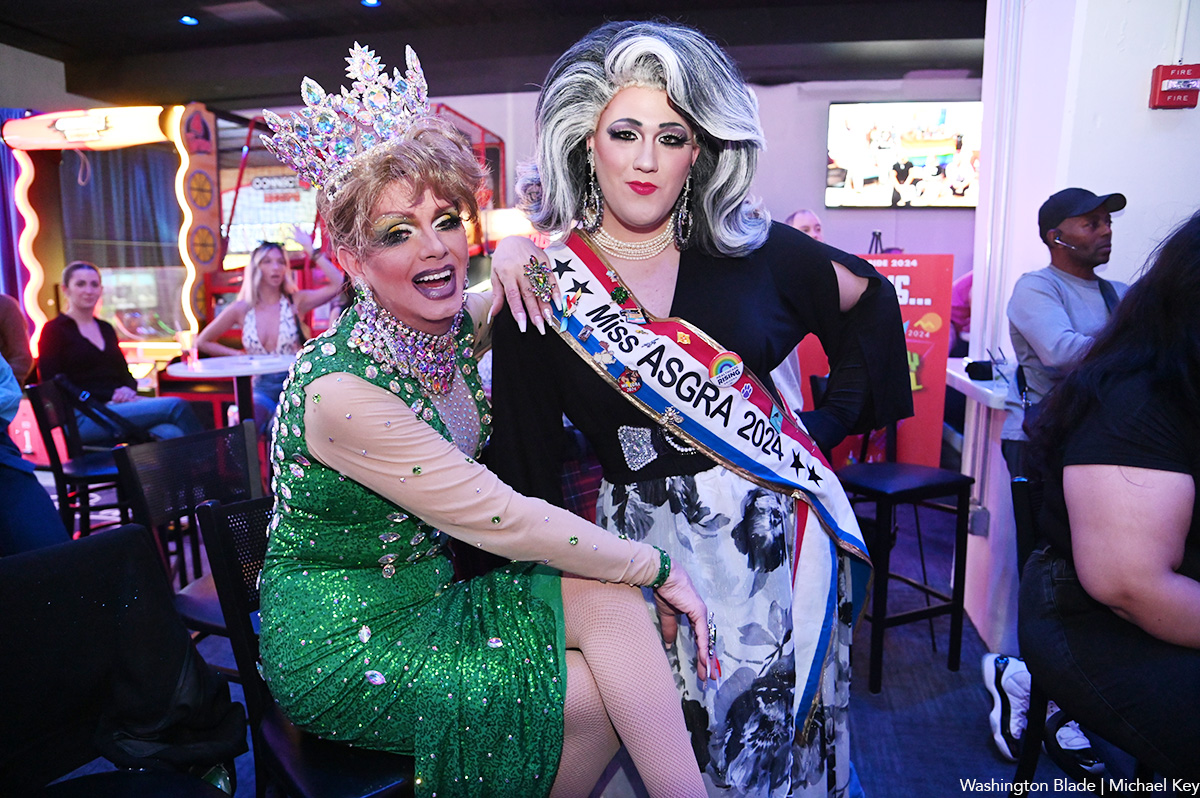
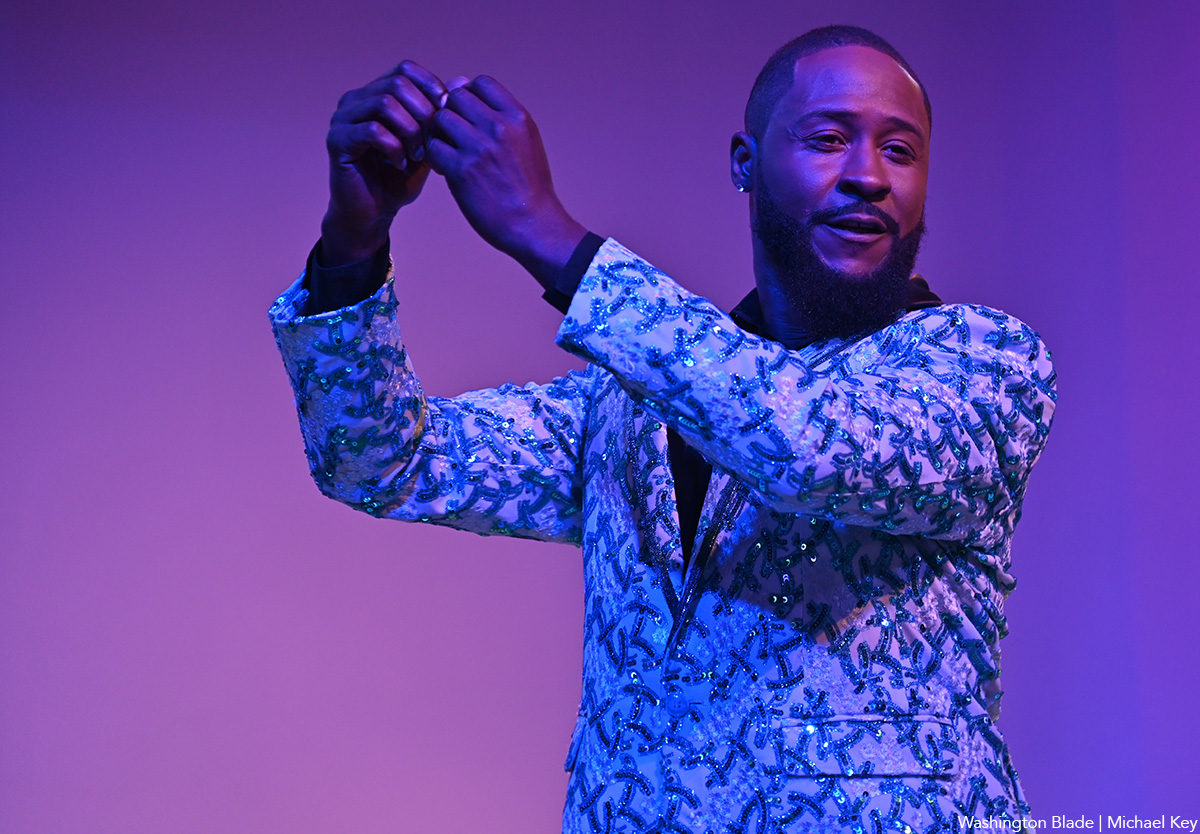
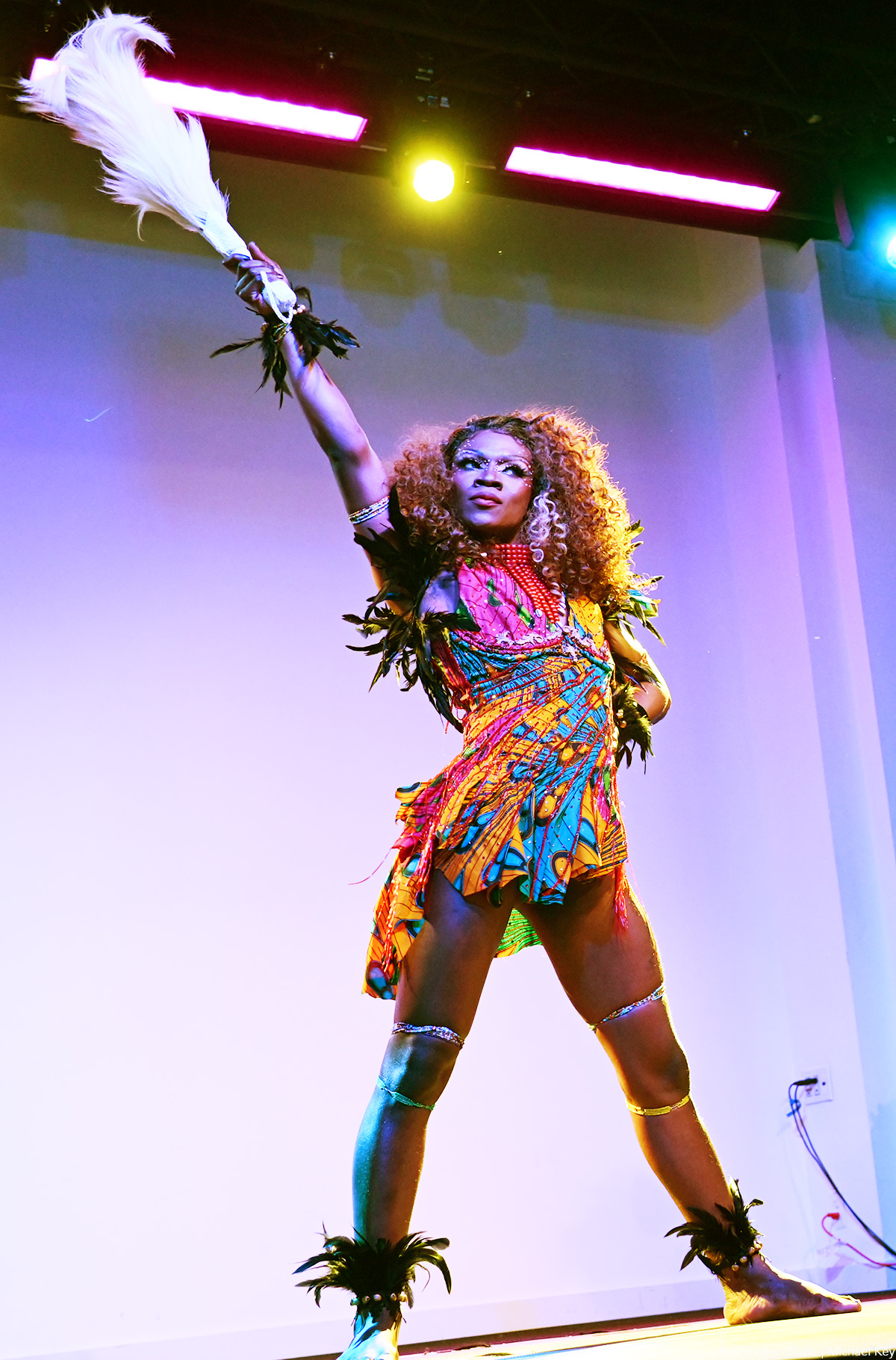
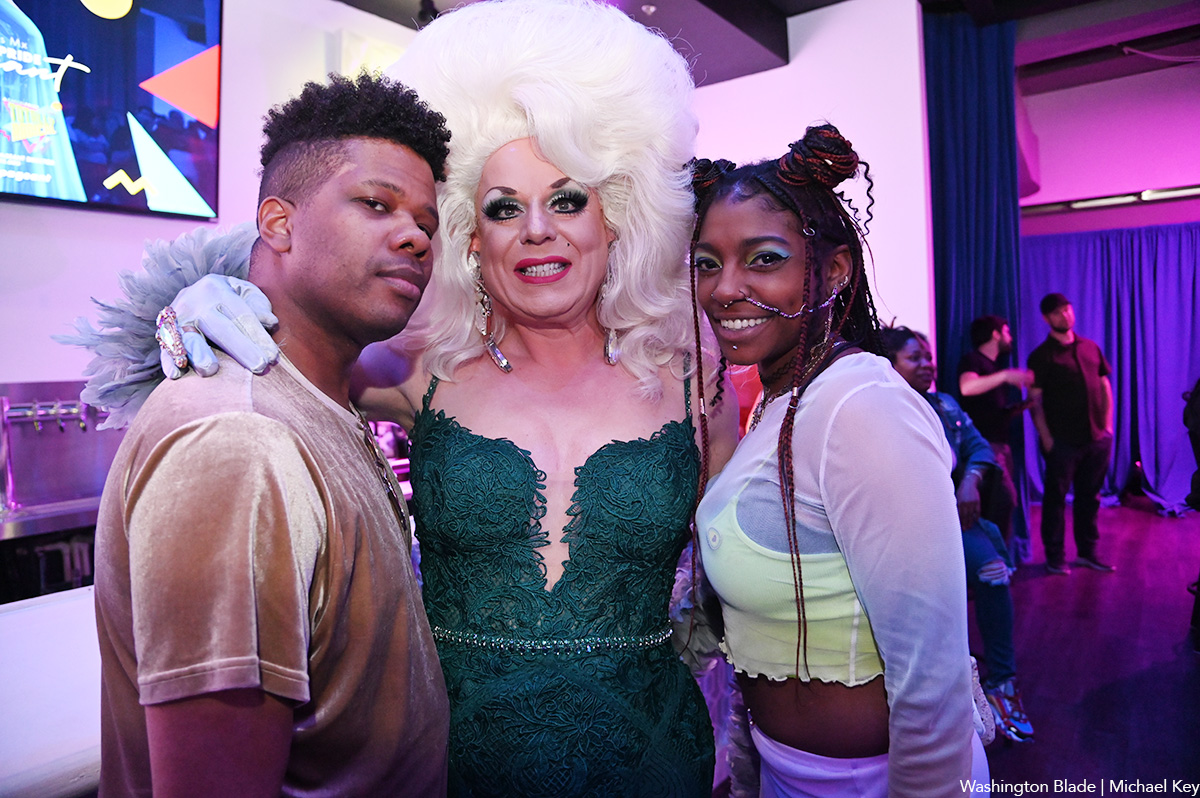
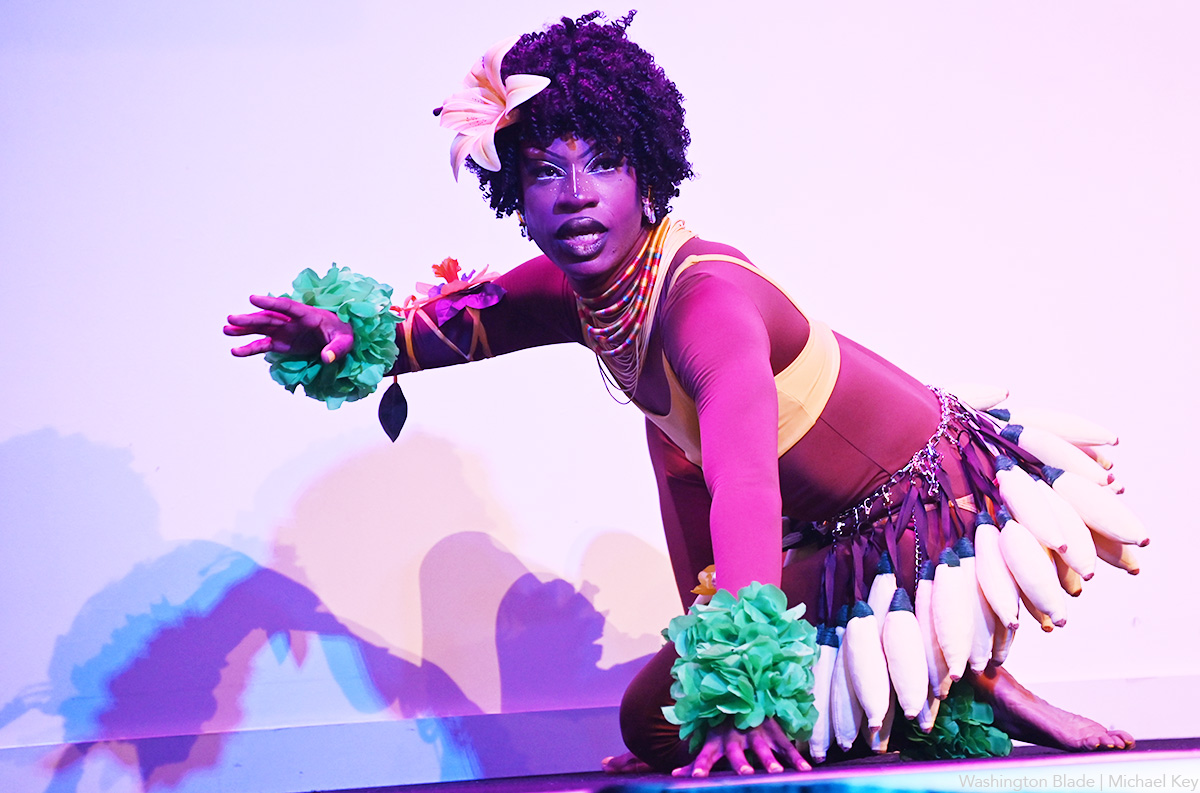
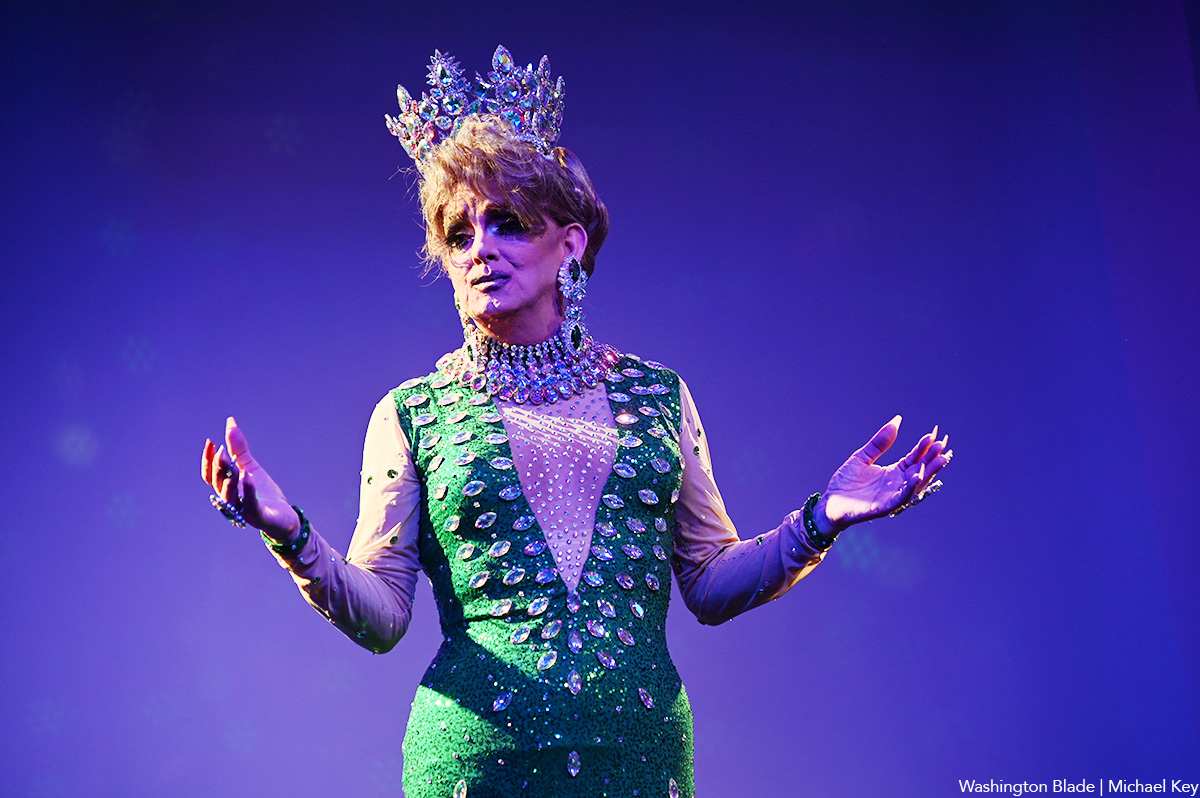
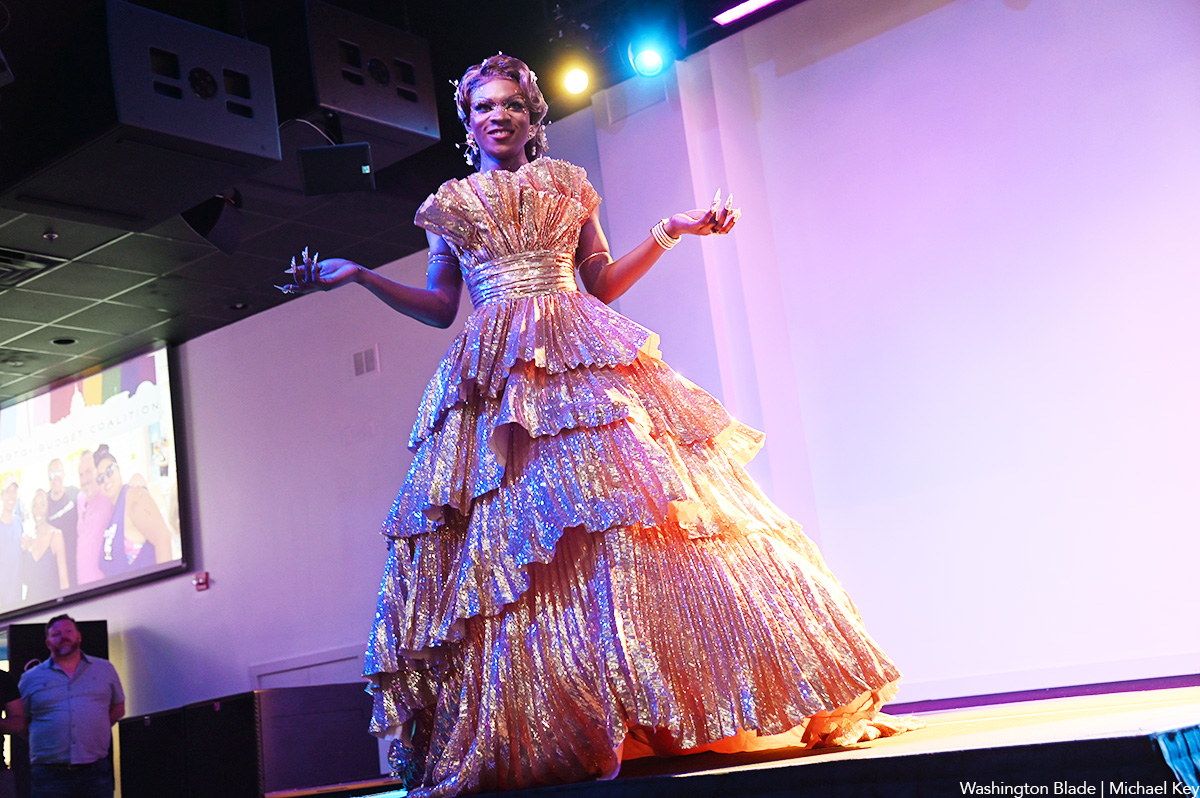
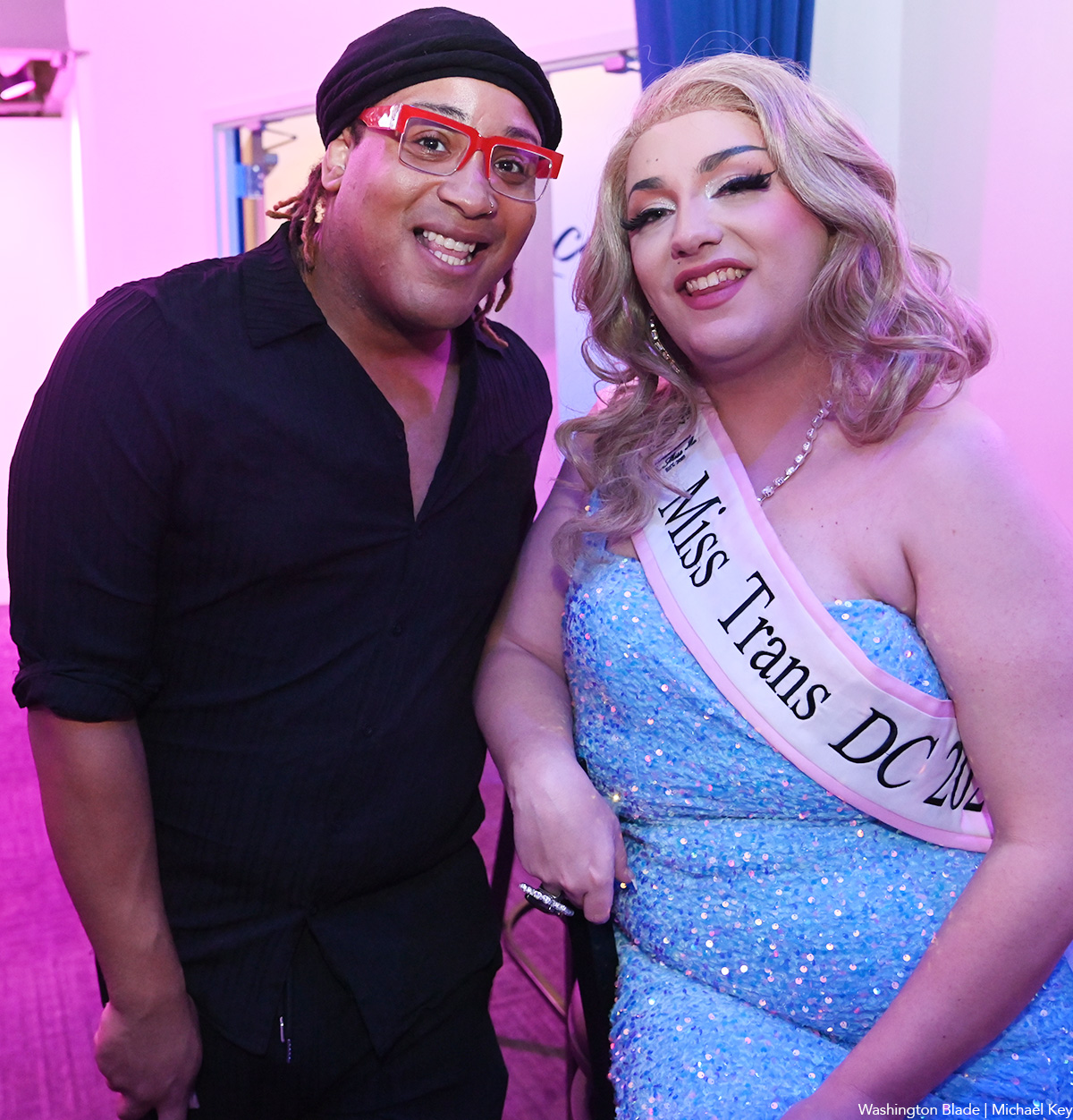
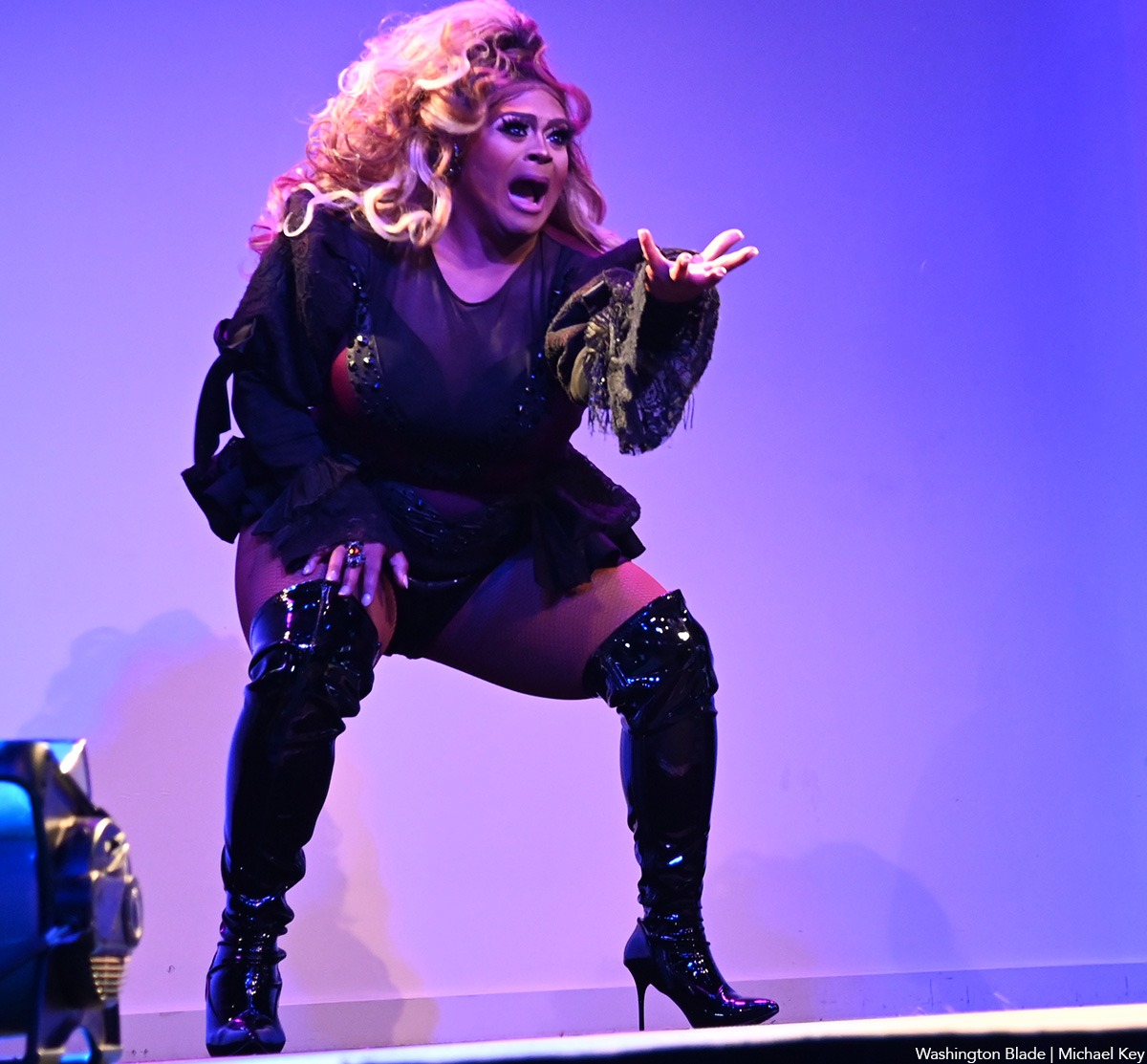
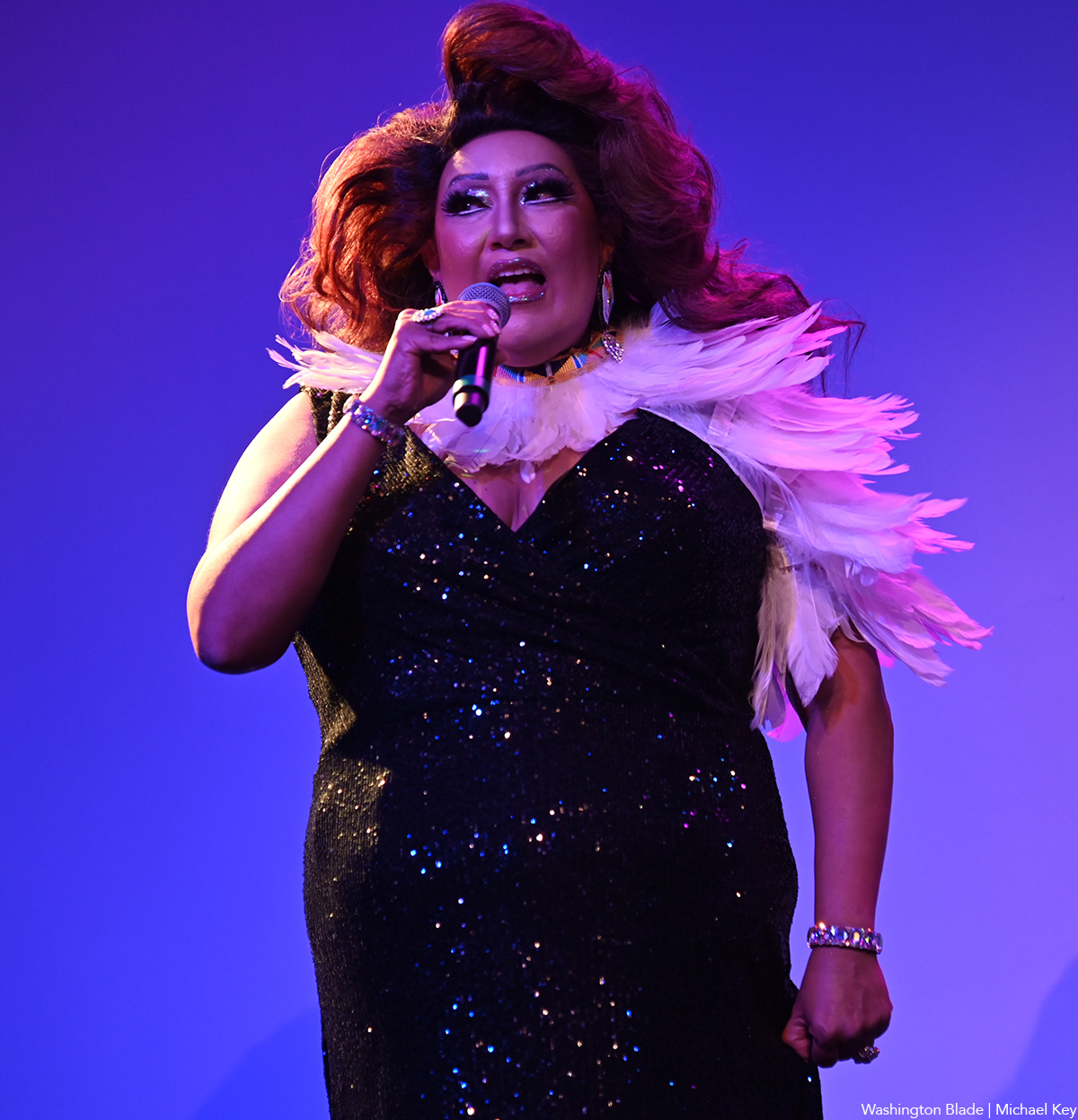
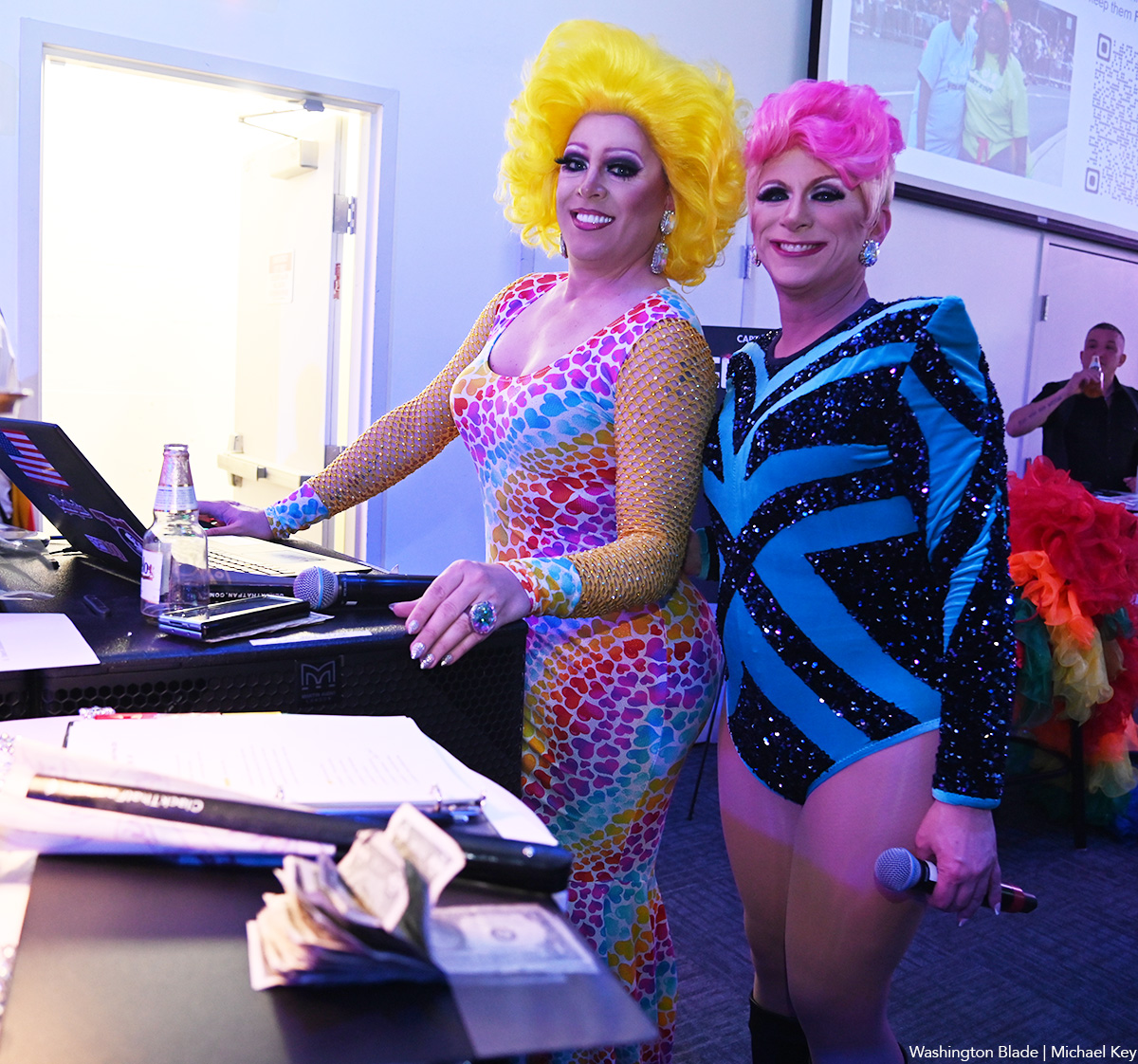
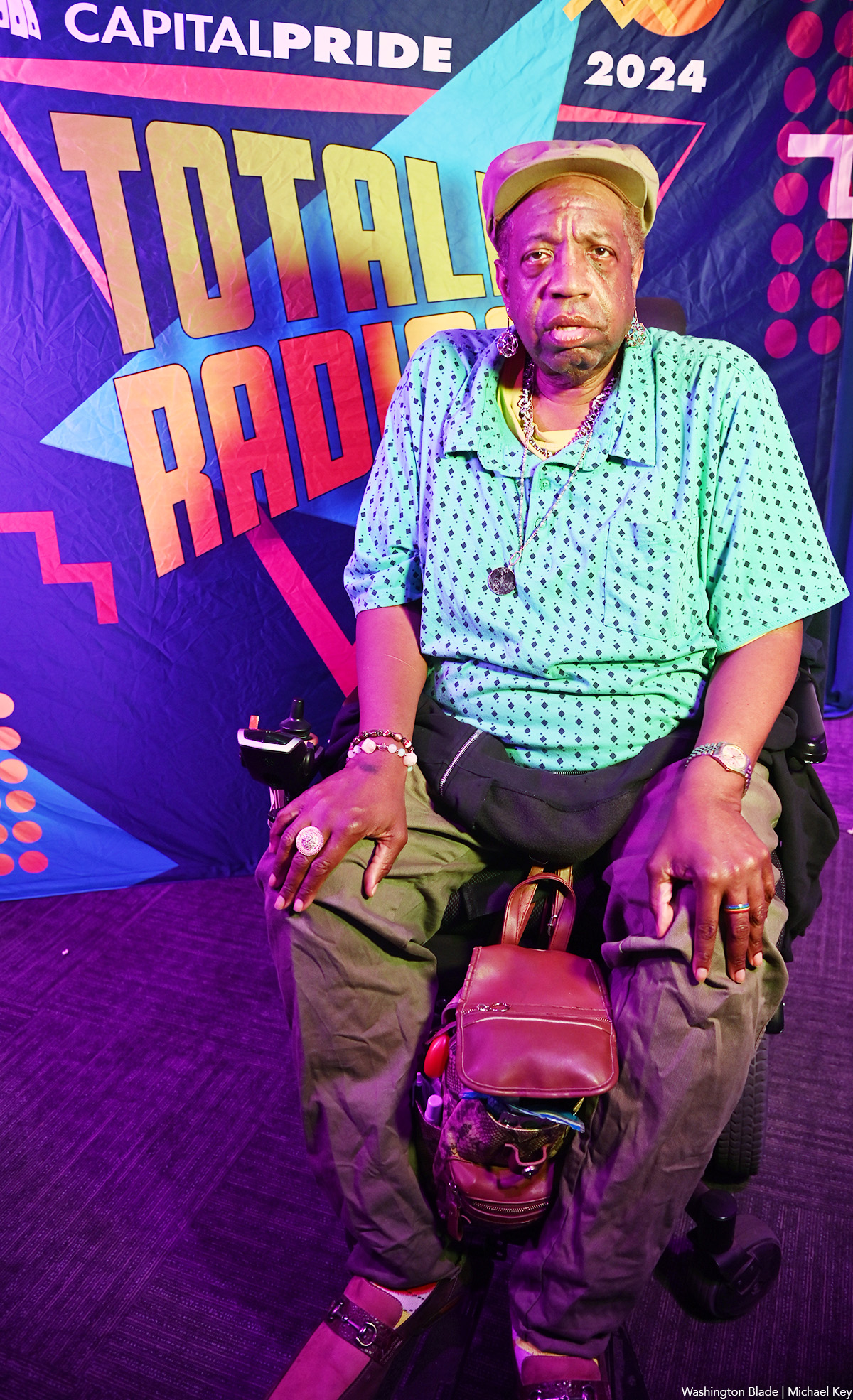
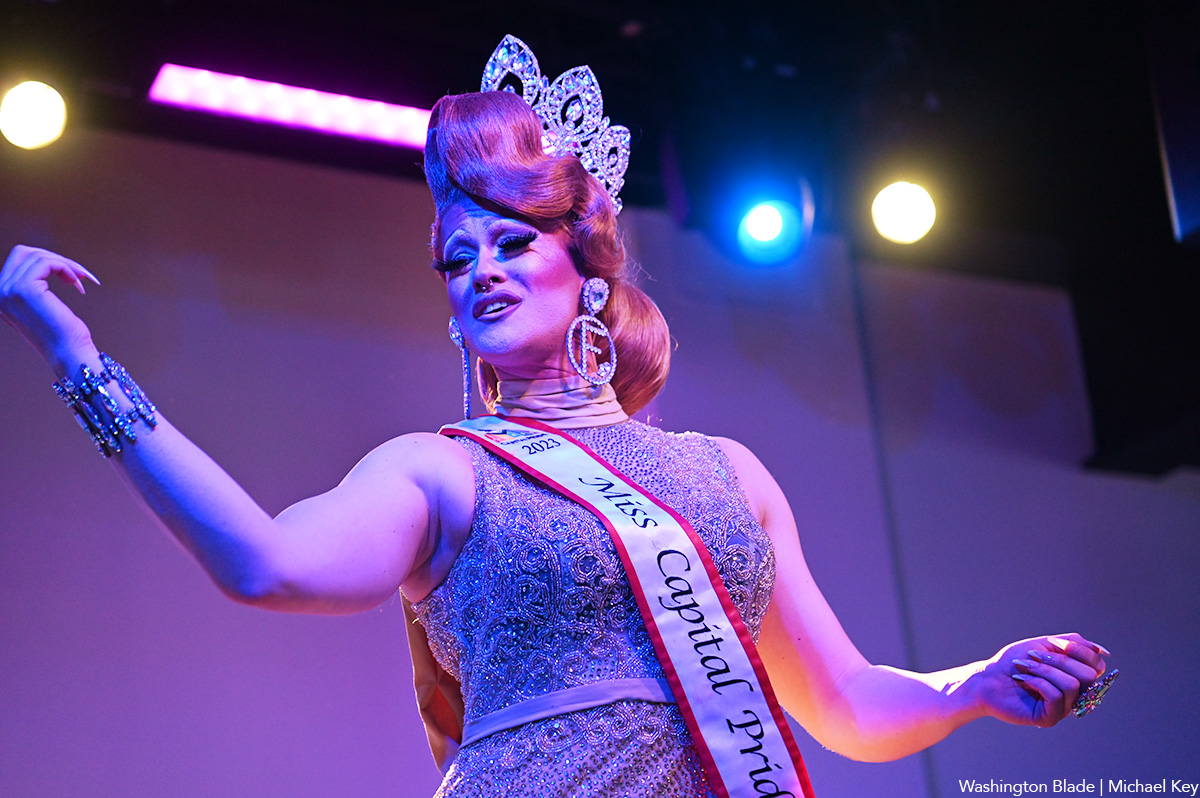
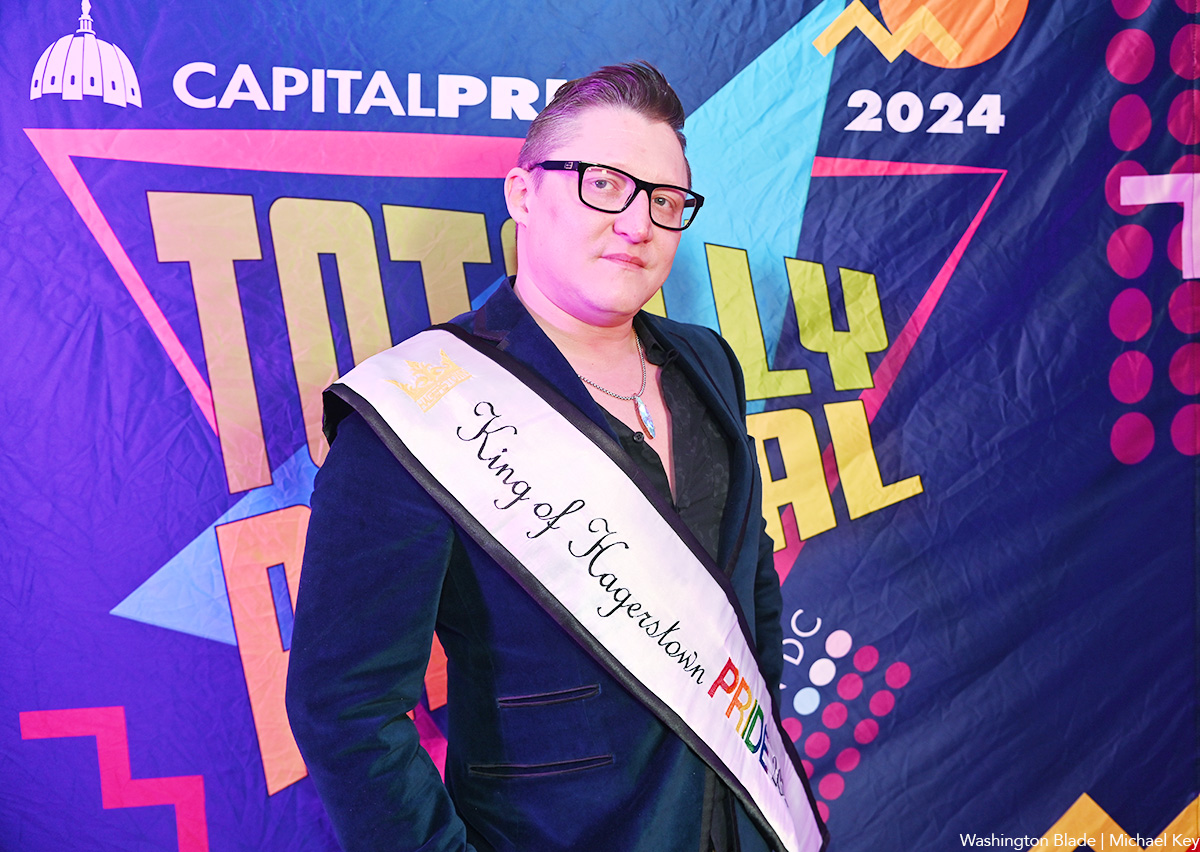
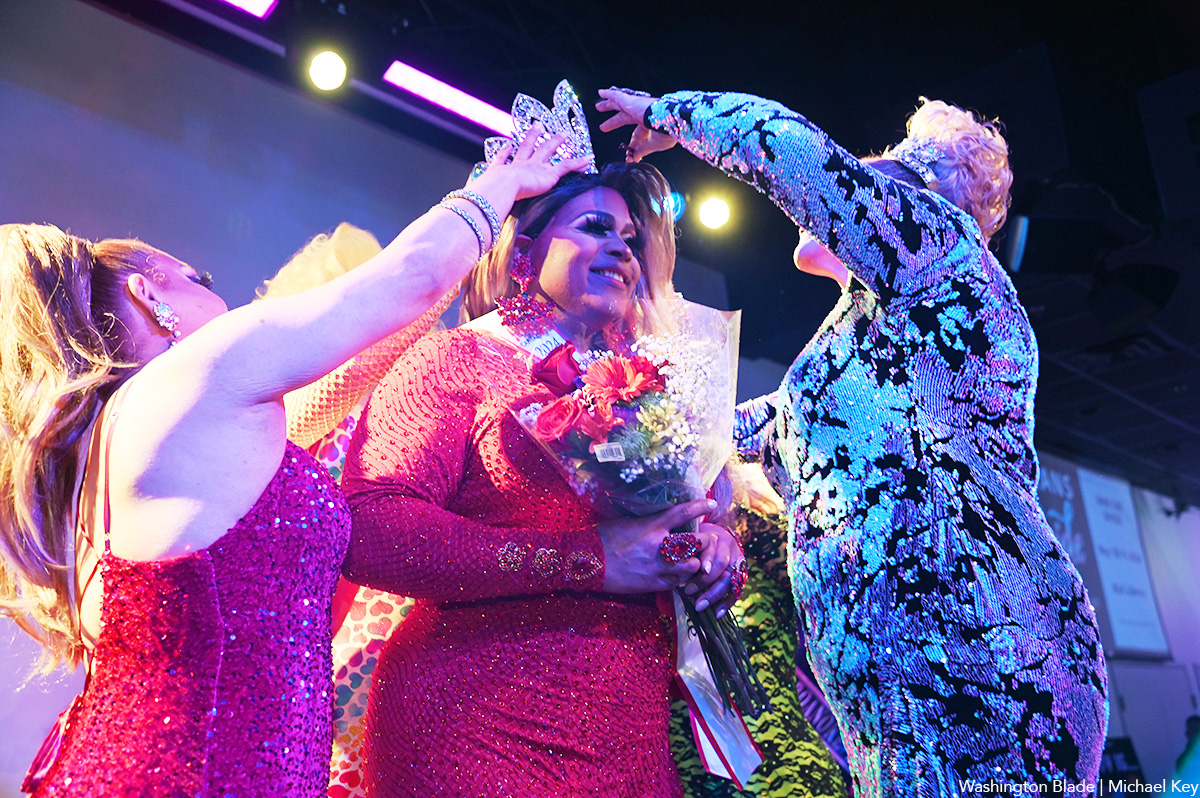
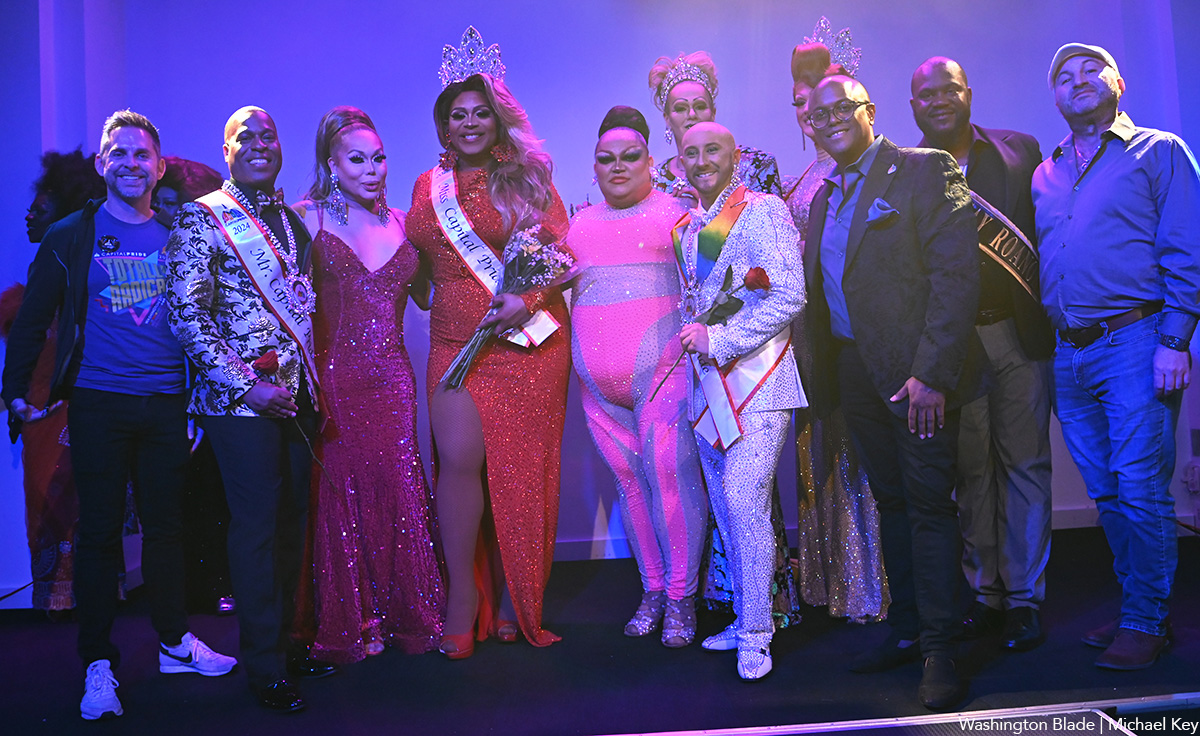
Theater
Round House explores serious issues related to privilege
‘A Jumping-Off Point’ is absorbing, timely, and funny
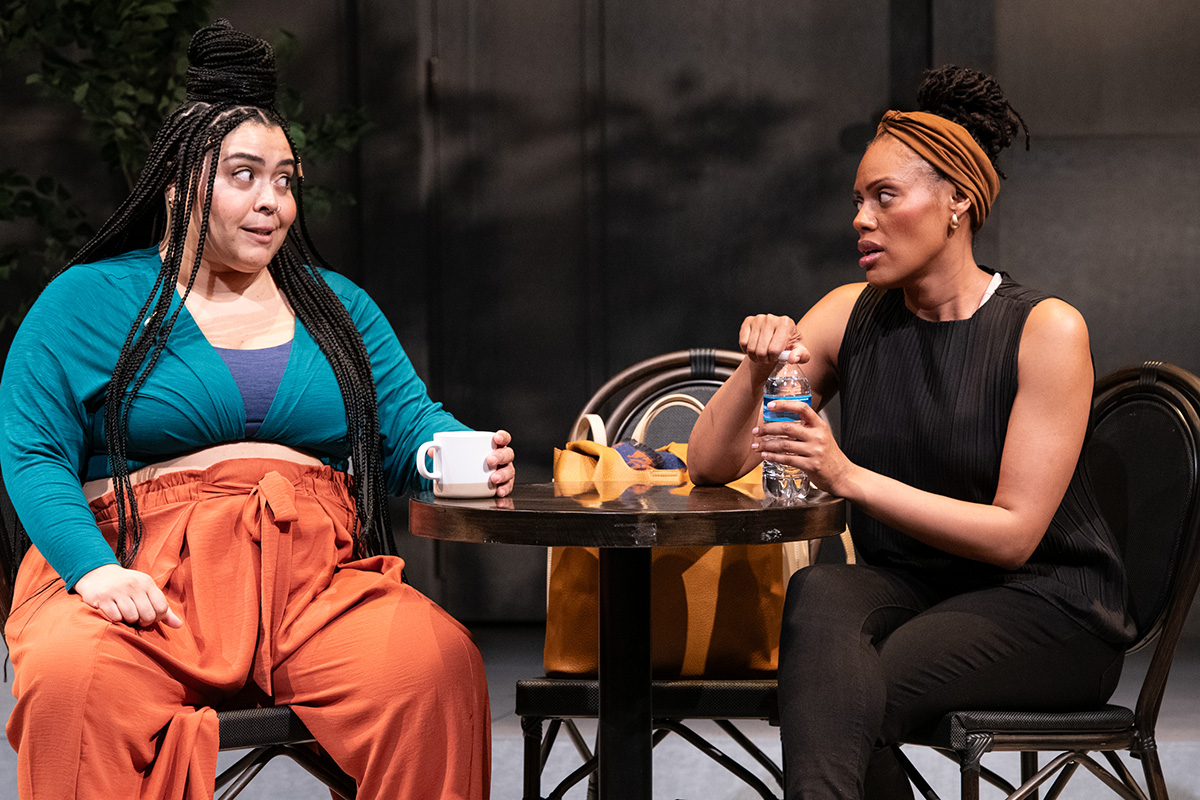
‘A Jumping-Off Point’
Through May 5
Round House Theatre
4545 East-West Highway, Bethesda, Md.
$46-$83
Roundhousetheatre.org
In Inda Craig-Galván’s new play “A Jumping-Off Point,” protagonist Leslie Wallace, a rising Black dramatist, believes strongly in writing about what you know. Clearly, Craig-Galván, a real-life successful Black playwright and television writer, adheres to the same maxim. Whether further details from the play are drawn from her life, is up for speculation.
Absorbing, timely, and often funny, the current Round House Theatre offering explores some serious issues surrounding privilege and who gets to write about what. Nimbly staged and acted by a pitch perfect cast, the play moves swiftly across what feels like familiar territory without being the least bit predictable.
After a tense wait, Leslie (Nikkole Salter) learns she’s been hired to be showrunner and head writer for a new HBO MAX prestige series. What ought to be a heady time for the ambitious young woman quickly goes sour when a white man bearing accusations shows up at her door.
The uninvited visitor is Andrew (Danny Gavigan), a fellow student from Leslie’s graduate playwriting program. The pair were never friends. In fact, he pressed all of her buttons without even trying. She views him as a lazy, advantaged guy destined to fail up, and finds his choosing to dramatize the African American Mississippi Delta experience especially annoying.
Since grad school, Leslie has had a play successfully produced in New York and now she’s on the cusp of making it big in Los Angeles while Andrew is bagging groceries at Ralph’s. (In fact, we’ll discover that he’s a held a series of wide-ranging temporary jobs, picking up a lot of information from each, a habit that will serve him later on, but I digress.)
Their conversation is awkward as Andrew’s demeanor shifts back and forth from stiltedly polite to borderline threatening. Eventually, he makes his point: Andrew claims that Leslie’s current success is entirely built on her having plagiarized his script.
This increasingly uncomfortable set-to is interrupted by Leslie’s wisecracking best friend and roommate Miriam who has a knack for making things worse before making them better. Deliciously played by Cristina Pitter (whose program bio describes them as “a queer multi-spirit Afro-indigenous artist, abolitionist, and alchemist”), Miriam is the perfect third character in Craig-Galván’s deftly balanced three-hander.
Cast members’ performances are layered. Salter’s Leslie is all charm, practicality, and controlled ambition, and Gavigan’s Andrew is an organic amalgam of vulnerable, goofy, and menacing. He’s terrific.
The 90-minute dramedy isn’t without some improbable narrative turns, but fortunately they lead to some interesting places where provoking questions are representation, entitlement, what constitutes plagiarism, etc. It’s all discussion-worthy topics, here pleasingly tempered with humor.
New York-based director Jade King Carroll skillfully helms the production. Scenes transition smoothly in large part due to a top-notch design team. Scenic designer Meghan Raham’s revolving set seamlessly goes from Leslie’s attractive apartment to smart cafes to an HBO writers’ room with the requisite long table and essential white board. Adding to the graceful storytelling are sound and lighting design by Michael Keck and Amith Chandrashaker, respectively.
The passage of time and circumstances are perceptively reflected in costume designer Moyenda Kulemeka’s sartorial choices: heels rise higher, baseball caps are doffed and jackets donned.
“A Jumping-Off Point” is the centerpiece of the third National Capital New Play Festival, an annual event celebrating new work by some of the country’s leading playwrights and newer voices.
Nightlife
Ed Bailey brings Secret Garden to Project GLOW festival
An LGBTQ-inclusive dance space at RFK this weekend

When does a garden GLOW? When it’s run by famed local gay DJ Ed Bailey.
This weekend, music festival Project GLOW at RFK Festival Grounds will feature Bailey’s brainchild the Secret Garden, a unique space just for the LGBTQ community that he launched in 2023.
While Project GLOW, running April 27-28, is a stage for massive electronic DJ sets in a large outdoor space, Secret Garden is more intimate, though no less adrenaline-forward. He’s bringing the nightclub to the festival. The garden is a dance area that complements the larger stages, but also stands on its own as a draw for festival-goers. Its focus is on DJs that have a presence and following in the LGBTQ audience world.
“The Secret Garden is a showcase for what LGBTQ nightlife, and nightclubs in general, are all about,” he says. “True club DJs playing club music for people that want to dance in a fun environment that is high energy and low stress. It’s the cool party inside the bigger party.”
Project GLOW launched in 2022. Bailey connected with the operators after the first event, and they discussed Bailey curating his own space for 2023. “They were very clear that they wanted me to lean into the vibrant LGBTQ nightlife of D.C. and allow that community to be very visibly a part of this area.”
Last year, club icon Kevin Aviance headlined the Secret Garden. The GLOW festival organizers loved the its energy from last year, and so asked Bailey to bring it back again, with an entire year to plan.
This year, Bailey says, he is “bringing in more D.C. nightlife legends.” Among those are DJ Sedrick, “a DJ and entertainer legend. He was a pivotal part of Tracks nightclub and is such a dynamic force of entertainment,” says Bailey. “I am excited for a whole new audience to be able to experience his very special brand of DJing!”
Also, this year brings in Illustrious Blacks, a worldwide DJ duo with roots in D.C.; and “house music legends” DJs Derrick Carter and DJ Spen.
Bailey is focusing on D.C.’s local talent, with a lineup including Diyanna Monet, Strikestone!, Dvonne, Baronhawk Poitier, THABLACKGOD, Get Face, Franxx, Baby Weight, and Flower Factory DJs KS, Joann Fabrixx, and PWRPUFF.
Secret Garden also brings in performers who meld music with dance, theater, and audience interactions for a multi-sensory experience.
Bailey is an owner of Trade and Number Nine, and was previously an owner of Town Danceboutique. Over the last 35 years, Bailey owned and operated more than 10 bars and clubs in D.C. He has an impressive resume, too. Since starting in 1987, he’s DJ’d across the world for parties and nightclubs large and intimate. He says that he opened “in concert for Kylie Minogue, DJed with Junior Vasquez, played giant 10,000-person events, and small underground parties.” He’s also held residencies at clubs in Atlanta, Miami, and here in D.C. at Tracks, Nation, and Town.
With Secret Garden, Bailey and GLOW aim to bring queer performers into the space not just for LGBTQ audiences, but for the entire music community to meet, learn about, and enjoy. While they might enjoy fandom among queer nightlife, this Garden is a platform for them to meet the entirety of GLOW festival goers.
Weekend-long Project GLOW brings in headliners and artists from EDM and electronic music, with big names like ILLENIUM, Zedd, and Rezz. In all, more than 50 artists will take the three stages at the third edition of Project GLOW, presented by Insomniac (Electric Daisy Carnival) and Club Glow (Echostage, Soundcheck).
-

 District of Columbia3 days ago
District of Columbia3 days agoCatching up with the asexuals and aromantics of D.C.
-

 South America3 days ago
South America3 days agoArgentina government dismisses transgender public sector employees
-

 Maine4 days ago
Maine4 days agoMaine governor signs transgender, abortion sanctuary bill into law
-

 District of Columbia4 days ago
District of Columbia4 days agoBowser budget proposal calls for $5.25 million for 2025 World Pride

